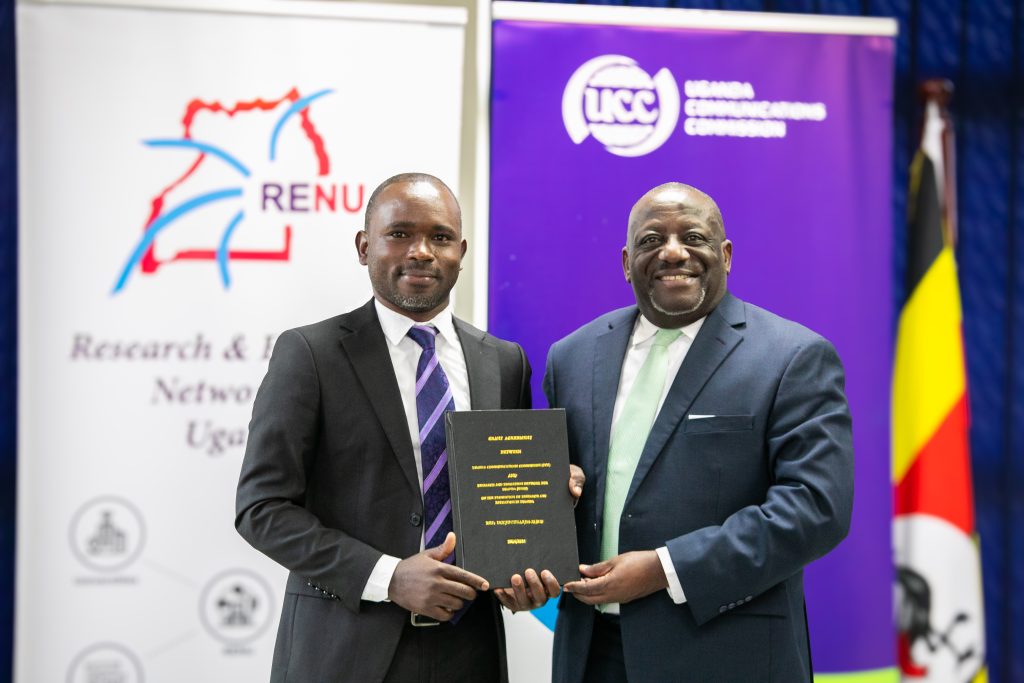In Uganda, digital transformation is reshaping the education landscape, with a growing emphasis on ICT integration and e-learning. The revised secondary school curriculum now requires schools to incorporate technology into teaching, fostering a student-centered learning approach. However, access to high-speed Internet remains a significant challenge, particularly for government schools that struggle with affordability. Recognizing this gap, the Uganda Communications Commission (UCC) and the Research and Education Network for Uganda (RENU) have renewed their partnership to extend Internet connectivity to more secondary schools, this will bridge the digital divide and enhance learning opportunities for thousands of students.
On January 6, 2025, RENU and UCC signed an agreement to connect 85 additional secondary schools to high-speed Internet under the Uganda Communications Universal Service and Access Fund (UCUSAF). This initiative builds on previous collaborations that have successfully connected 144 schools to RENU’s network, making high-quality and affordable Internet more accessible. With this new expansion, the total number of schools benefiting from the RENU-UCC partnership will rise to 229. Yet, while these milestones are commendable, RENU remains focused on expanding digital access further, as many schools across Uganda still lack reliable connectivity.
RENU has also been instrumental in providing technical training for ICT Heads in schools, equipping them with essential skills in network management. This ensures that schools not only receive Internet services but can also maintain clean and secure networks for sustainable use. Additionally, the availability of high-speed Internet has facilitated the integration of digital learning tools such as e-learning platforms, web hosting services, and eduroam.
Through this collaboration, schools have reported significant improvements in academic performance and digital literacy. Institutions such as Lira Town College have leveraged the Internet to develop virtual learning workshops and digital libraries, ensuring students have access to resources that were previously out of reach. Moreover, the introduction of the RENU Metro eduroam service has enhanced research opportunities, allowing students and educators to collaborate on academic projects and access vast educational databases remotely.
The partnership between RENU and UCC not only showcases the commitment RENU has to advancing access to research and education resources, but also emphasizes how NRENs can collaborate with the state to achieve advancements in research and education. The full press release detailing the partnership can be accessed here. The image used in this articles was sourced from the RENU website here.

